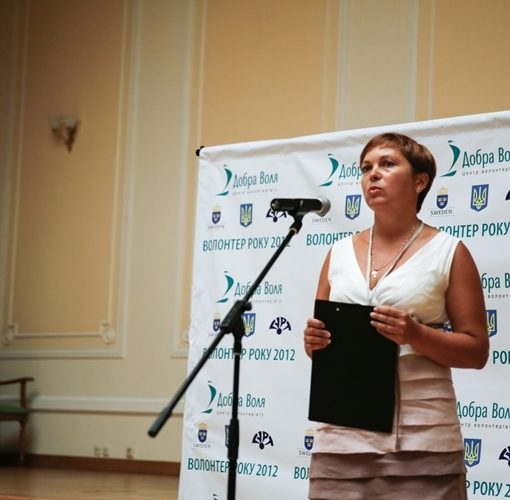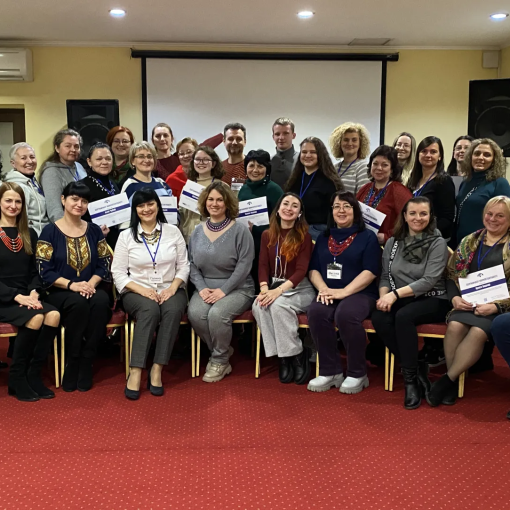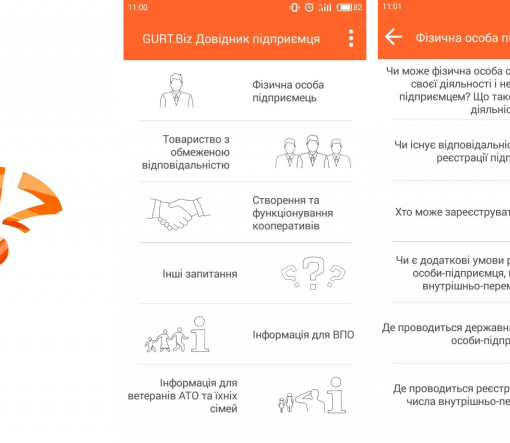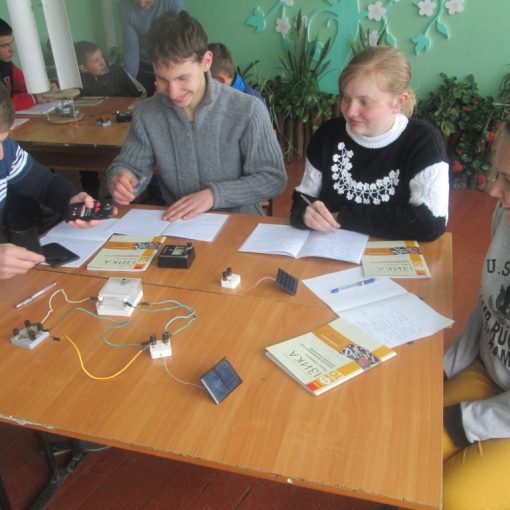Leaders of the national NGOs got acquainted with Estonian colleagues’ experience of establishing cooperation in public sector. Two-day training “NGO as a mover of social change: how do we increase our impact?” took place in Poltava (September 11-12) and Chernivtsi (September 14-15).
The events are a part of “Transform Gurt” project, implemented by GURT Resource Centre in partnership with Network of Estonian Nonprofit Organizations with the financial support of Ministry of Foreign Affairs of Estonia.

The experts of NENO Kateryna Danylova and Toomas Roolayd shared their experience. In two cities more than 50 heads and managers of leading NGOs were involved in the events.
The participants took a closer look at 3 blocks of topics, each of which was accompanied by the examples from Estonian practice. Due to interactive exercises activists were able to work deeper and in a more detailed way on the topic.
The leaders of the NGOs had a discussion about how Ukrainian society should develop and what is needed for this, which tools should be used to get better results, how to organize cooperation between organizations. During the discussions the participants brought up the examples from their NGO’s practices and thought about the ways to use their achievements.

Iryna Gaiduchuk, Head of regional youth NGO “Volyn Law Institute” from Lutsk, shared her conclusions: “Ukrainian and Estonian civil society models are different. However, we can use our Estonian colleagues’ model as a basis. We should develop our public sector more. Estonian organizations don’t compete, and we should behave the same. A lot of Ukrainian organizations aren’t ready to share power, authority and finance. The coaches told us how to make organizations which have more experience teach other organizations which want to work, but need support. It would be interesting to create a model on regional level and see how it works. And national level is our goal”.
Ruslan Kostyukevych, Projects’ Coordinator at “Regional Center of Eurointegration Projects” NGO from Rivne, shared his thoughts about the current state and the further transformation of civil society too: “Public sector in Ukraine is actively developing since 2014, but the ways of its development are not similar. We should adopt foreign positive experience. Moreover, we should analyze the tools they use and how we can use them in our conditions. In my opinion, the consolidation of public sector should be thematic, which means that organizations should unite accordingly to their tasks and interests”.

Andriy Karpenko, Board Member of “Center of Culture and Development “Horizont”” from Poltava, highlighted that training was very dynamic and meaningful: “We are interested in participating in NGO network which has to be created for the powerful civil movement construction and could conduct a dialog with authorities and help with the new civil initiatives. By using Estonian colleagues’ experience in Ukrainian conditions we can create the model of network, principles of workflow simplification, the basis of cooperation with donors and representatives of local government”.
However, participants think that there is a range of obstacles to slow down civil activity. Iryna Fomenko, Head of “Professional Development of Kharkiv Foundation” NGO, who made a study visit to Estonia in 2016, highlighted that Ukrainian organizations still lack unity. The demand for it should be created.

Coaches also made a lot of interesting observations. Kateryna Danilova, Communications Expert, the representative of NENO, said: “The participants invited for the trainings turned out to be very different – in approaches they use, in management styles and how they see the future of Ukraine. What unites them? Above all, they are dissatisfied with their contacts with authorities – on systematic and trust level of these. They also feel non-content with how hard it is for different organizations to come to a common opinion when they need to address the authorities. These people are united by how energetic and ready to fight they are. Speaking about regional differences, I can say that you don’t have as many as you think you do”.

“I see that people here have been working systematically and for a long time” – Toomas Roolayd, NGO Strategic Development Consultant, NENO representative, said. “They truly understand their target group, they know different approaches, and how they can help this group. However, these people are working with high emotional expectations and it’s important for them not to “burn out”, because the processes and results in third sector take time. They should be able to focus. When you want to do a lot – you lose focus. And this shouldn’t happen”.




